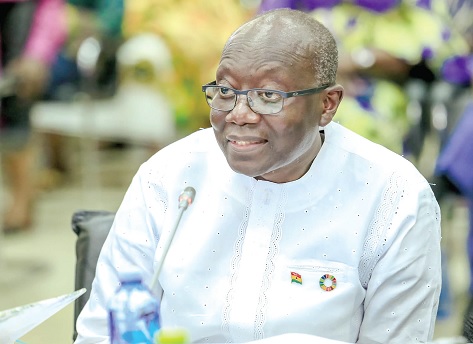
Ghana commences US dollar denominated domestic debt exchange programme
The government is seeking the full participation from all investors in its dollar denominated bonds to restructure debts totalling about US$809 million.
The successful completion of this aspect of the domestic debt exchange programme is very crucial to Ghana’s quest to restore debt sustainability which is a critical component of the IMF programme.
A draft memorandum of the invitation shows that the government intends to swap two dollar denominated bonds which are expected to mature in November 2023 and November 2026, respectively with new bonds that would mature in 2027 and 2028.
The new bonds will also come with a reduced coupon rate of 2.75 per cent and 3.25 per cent.
This compares to the 4.75 per cent and 6 per cent offered for the old bonds.
An exhange memorandum dated July 14 noted that the invitation to exchange would not embed any principal haircut on eligible bonds.
It also pointed out that the Republic, in its sole discretion, may settle the eligible bonds in full or in part and that the eligible holders’ subscription to receive the new Bonds is voluntary.
A release issued by the Ministry of Finance indicated that the successful completion of this domestic debt exchange is a critical component of both the debt reduction programme and the programme discussions with the International Monetary Fund (IMF).
“It will contribute to unlocking the support of the international community and will allow Ghana to achieve its debt targets. As such, the Government calls for the full participation of all holders of Eligible Bonds, the release stated.
Domestic debt exchange
Ghana’s economy has been battling with severe challenges in the last two years, with inflation hitting a 22-year high of 54.1 per cent in December 2022, and an unsustainable public debt of GH¢575.7 billion, which represents 93.5 per cent of the country’s GDP.
In July 2022, the government formally approached the IMF for a fund programme and was able to secure a staff level agreement in December. An Executive Board level approval which would pave the way for the disbursement of the US$3 billion support, was, however, dependent on the country’s ability to restructure both its domestic and external debt.
The Domestic Debt Exchange Programme which was announced by the government in December was met with stiff opposition from stakeholders but after months of engagements, the government was finally able to reach an agreement with its domestic debtors.
The DDEP saw the government swap a total of GH¢82 billion of old bonds for 12 new ones at a reduced coupon rate and longer tenor.
The government has however indicated in recent times that the domestic debt restructuring was still not yet over as it seeks to restructure cocoa bills and US dollar denominated bonds.